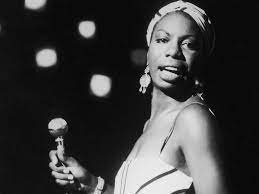Eunice Kathleen Waymon, better known as Nina Simone, was an American singer, songwriter, pianist, and civil rights activist who was born on February 21, 1933. Her music included classical, folk, gospel, blues, jazz, R&B, and pop influences.
Her father, John Divine Waymon, was a barber, dry cleaner, and entertainment, and her mother, Mary Kate Irvin, was a Methodist preacher. The sixth of eight children in an impoverished family, she began playing piano at the age of three or four; the first song she learned was “God Be With You, Till We Meet Again”.
She performed at her local church, displaying an aptitude for the piano. Her classical performance debut occurred when she was 12 years old. Simone later stated that her parents, who had taken seats in the first row, were forced to shift to the back of the hall to make space for white people during the performance.
How did Nina Simone change the world?
Nina was well-known for her candor. According to Nina, the worst part about discrimination is that it feeds your self-doubt while you are upset, furious, and everything else. You begin to wonder if you are good enough.
During the civil rights struggle, she recorded songs like “Mississippi Goddamn” and “Four Women” that spoke out against racism and other injustices.
Nina later became a key voice in the civil rights movement, articulating the African American community’s experiences in the 1960s.
“Mississippi Goddam” was composed in the aftermath of Medgar Evers’ killing and the bombing of a Birmingham church, which resulted in the deaths of four young girls.
“Four Women” focused on black women’s challenges and suffering through the eyes of four individual black women.

